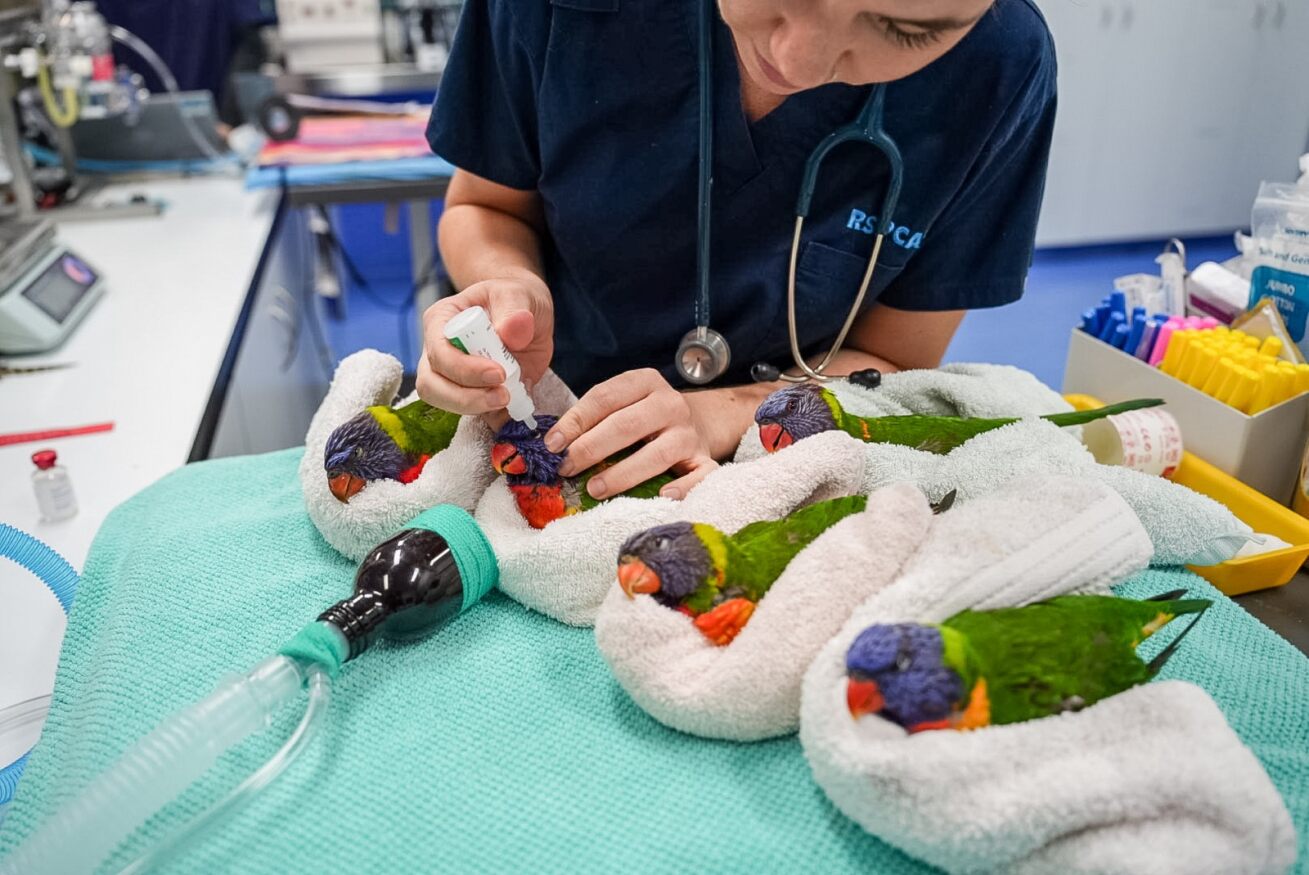The RSPCA has reportedly found hundreds of birds with Lorikeet Paralysis Syndrome in Queens Park Ipswich since early December.
The disease leaves the lorikeets paralysed making it difficult for the birds to fly and feed themselves
There has also been a number of flying foxes that have contracted the disease in the park.
Toowong and Queens Park in Ipswich are now both emerging as hot spots again this Summer for the disease.
RSPCA spokesperson Emma Lagoon explains what locals should do if they come across sick wildlife.
“If you find a sick lorikeet doesn’t look quite right and you are able to go up to it please put it in a box with a towel and take it to your nearest vet or Wildlife Hospital.
“If you see a sick flying the best option is to not touch them,” she said.
“Since December, we’ve seen about 453 lorikeets and flying foxes that have come down with this disease, so if anyone sees any in the area to notify us and we can hopefully get them to carers and wildlife hospitals,” Ms Lagoon said.
It comes after 5,821 lorikeets were brought into RSPCA’s care after being with the disease in Ipswich earlier this year.
It’s understood that up to 200 new birds entered the Wildlife Hospital daily in January and February.
49 birds were released together in Ipswich’s Queens Park in March (see video below).
Symptoms of Lorikeet Paralysis Syndrome
- Inability to fly
- Hopping / wobbly gait
- Voice changes
- Inability to blink and/or swallow
LPS is treatable when found early but requires weeks of intensive care.
How to help:
- If you find a sick flying fox, do not touch them. Call the RSPCA on 1300 ANIMAL, Bat Conservation and Rescue Qld, or your nearest wildlife carer.
- If you find a sick lorikeet you can transport them to your nearest vet for triage in a box with ventilation and a towel, otherwise call the RSPCA on 1300 ANIMAL or your nearest wildlife carer.
For details click the following link https://www.rspcaqld.org.au/blog/wildlife-conservation/lorikeet-paralysis-syndrome









